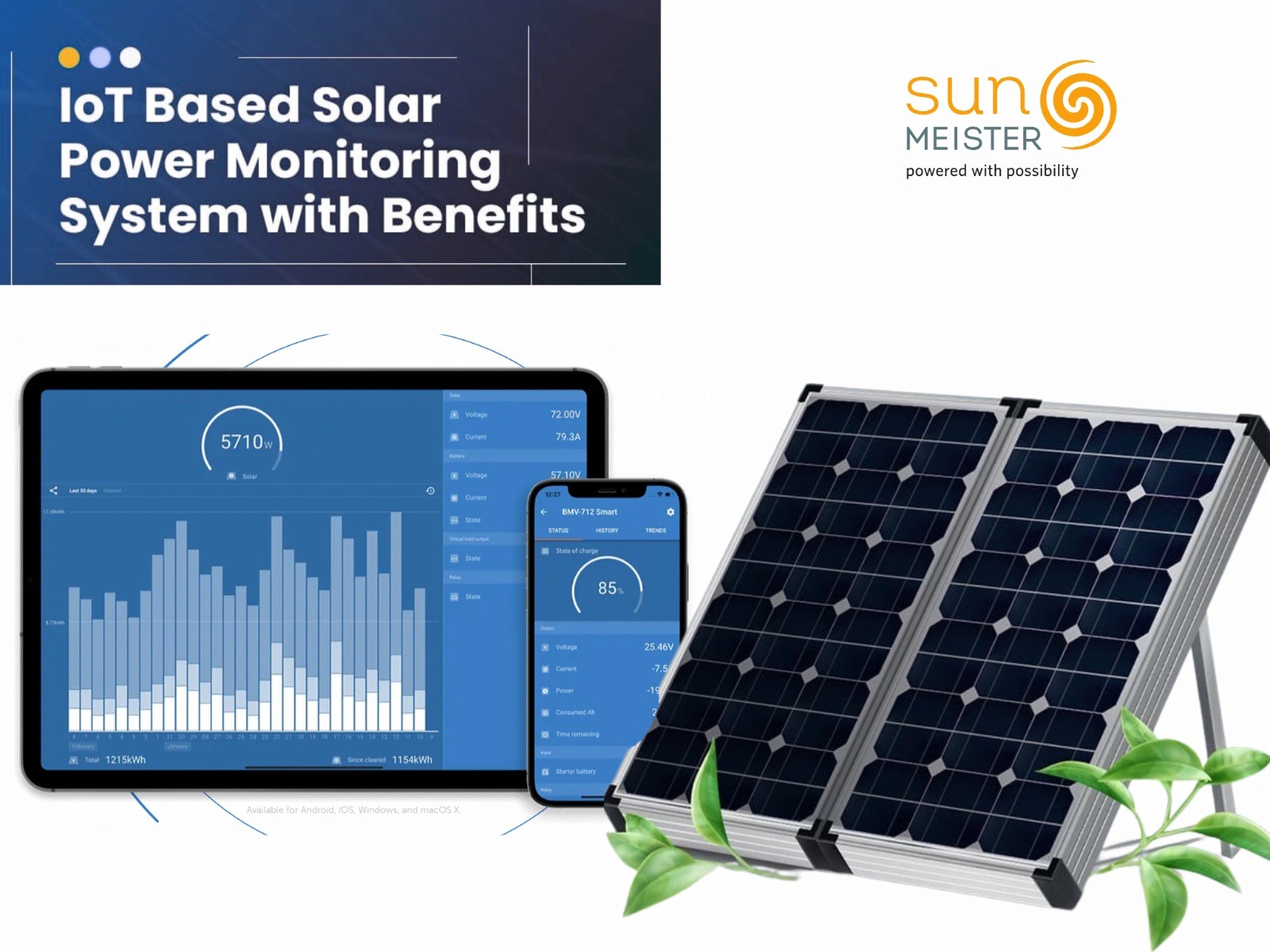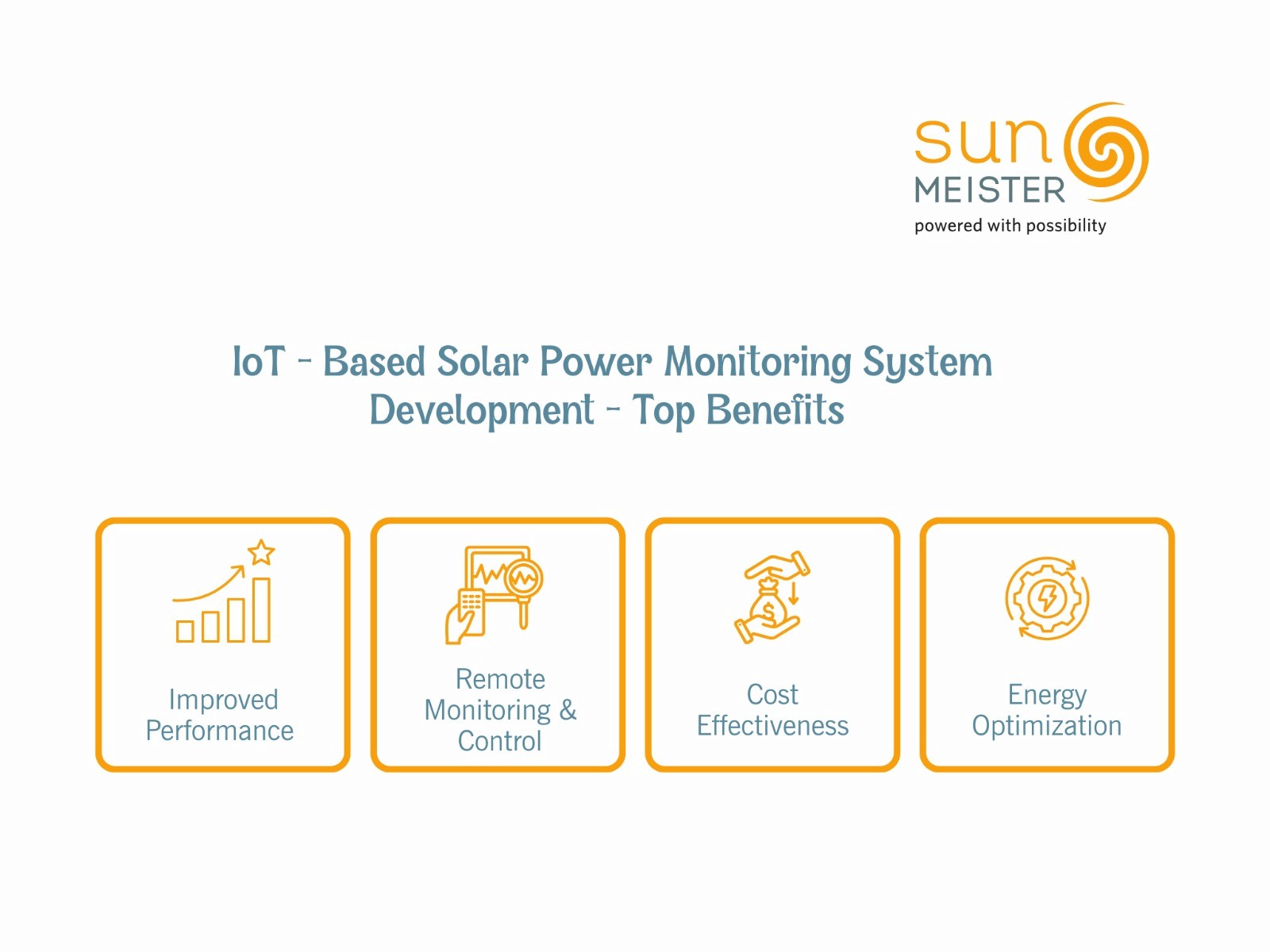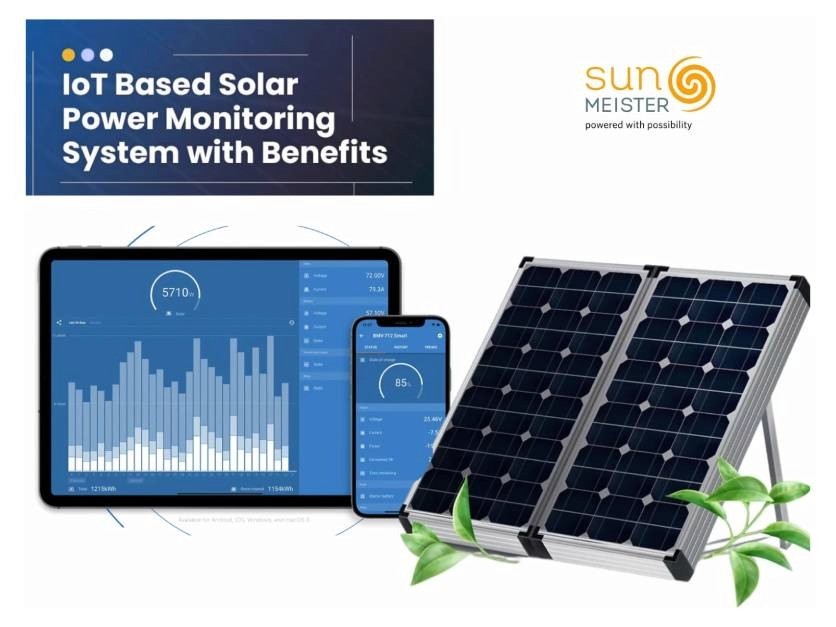As India surges ahead in its renewable energy goals, solar adoption is no longer limited to rooftop panels and basic inverters. A growing trend is transforming how solar power is managed: the integration of Internet of Things (IoT) technology. With the Indian government targeting 280 GW of solar capacity by 2030 and growing concerns over energy efficiency, IoT-enabled solar systems are helping users gain real-time control, optimise usage, and drive greater savings.

What is IoT in Solar Energy?
The Internet of Things (IoT) refers to a network of smart devices that collect, transmit, and analyze data. When applied to solar energy, IoT enables solar systems to monitor and manage power generation, storage, and consumption dynamically.
Core components of an IoT-powered solar system include:
Smart Meters and Sensors: Monitor solar production, energy usage, temperature, and battery status.
Smart Inverters: Automatically switch between solar, battery, and grid power based on real-time conditions.
Mobile Apps and Dashboards: Allow users to control and monitor their systems remotely.
Cloud Analytics: Store and analyze data for performance optimisation.
How IoT Improves Energy Efficiency
IoT enhances the efficiency of solar systems in several ways:
Real-time Monitoring: Users can track energy generation and usage patterns instantly, reducing unnecessary grid reliance.
Predictive Maintenance: Sensors identify faults or performance drops early, reducing system downtime.
Dynamic Load Management: Automatically runs high-energy appliances during peak solar hours.
Weather-based Adjustments: Adjusts battery charging/discharging based on solar forecasts to maximize energy storage.
According to the World Resources Institute (WRI), intelligent energy management through digital tools can improve energy savings by up to 20–25%, depending on the setup and usage patterns.
Financial Upside: Smarter Savings with Smart Solar
Data-driven solar systems offer substantial cost advantages:
Load Shifting: With IoT, users can schedule high-load appliances like water heaters or dishwashers during maximum solar output, minimizing grid usage.
Peak Hour Avoidance: In states like Maharashtra and Tamil Nadu where time-of-day (ToD) tariffs apply, switching to battery during peak grid rates (₹9–₹12/kWh) can save up to ₹1,000–₹1,500 per month.
Battery Optimization: Smart battery management algorithms improve charge/discharge efficiency and increase lifespan, reducing long-term replacement costs.
Case studies from smart grid pilot projects in India show that combining solar and digital management systems can reduce total monthly electricity bills by 15–30%, depending on consumption patterns.

Real-World Use Cases
Residential Example (Kerala): A homeowner reduced grid dependence by 40% by scheduling heavy appliance use during peak solar hours, identified via IoT-enabled dashboards.
SME Example (Pune): A small-scale packaging factory integrated a smart hybrid system that automatically shifts operations to battery backup during high-tariff grid hours, saving over ₹12,000/month.
Enhanced System Longevity & Maintenance
Smart solar isn’t just about savings—it also protects your system:
Alerts & Diagnostics: Get automatic alerts for panel soiling, inverter faults, or battery issues.
Firmware Updates: Many IoT inverters receive performance-enhancing software updates via the cloud.
Maintenance Scheduling: Based on usage data, homeowners can plan timely servicing to ensure peak performance.
The Future of Solar: AI, P2P Energy Trading & Smart Grids
Looking forward, IoT will converge with AI and blockchain to unlock even greater efficiencies:
AI-powered Energy Forecasting: Enables ultra-precise battery usage and load prediction.
Peer-to-Peer Energy Trading: Homes with surplus solar energy can sell it within a community network.
Smart Grid Integration: Enables demand-response models and better national energy balance.
Why Choose Sunmeister?
At Sunmeister, we specialize in intelligent hybrid solar systems designed for Indian homes and businesses. Our solutions include the trusted Victron Energy range, known for their advanced smart inverters, real-time energy monitoring, and battery management capabilities. Whether you’re upgrading an existing system or starting fresh, Sunmeister ensures performance, longevity, and intelligent control.
Sample of VictronConnect dashboard interface showing real-time energy flow and system parameters.
IoT-enabled solar systems offer more than just smart controls—they represent a shift toward intelligent, self-optimizing energy ecosystems. For Indian homes and businesses, this means real-time insights, better savings, enhanced resilience, and future-readiness.
As you consider your next solar investment, prioritising intelligent technology will help maximise your returns and make energy management not just efficient, but effortless.

